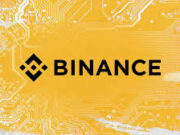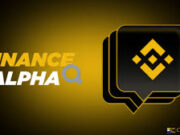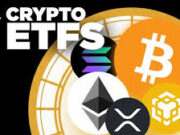If you have been watching global crypto developments closely, you already know that Central Asia is fast becoming a hub of blockchain innovation. Among the nations leading this charge, Kazakhstan has now stepped forward with a headline-grabbing move. On September 23, 2025, the National Bank of Kazakhstan launched the pilot of Evo (KZTE), a stablecoin pegged 1:1 to the Kazakhstani tenge (KZT). What makes this project different, however, is not only its base on Solana’s high-speed network, but also its backing by none other than Mastercard.
Instead of being an experimental test hidden in a lab, Evo has been designed as a serious financial bridge between crypto and traditional banking. For Kazakhstan, which has already built momentum as a mining and fintech powerhouse, this represents not only another step forward but also a major leap into global digital finance (Cointelegraph, 2025).
Evo Unveiled: The First Tenge-Pegged Stablecoin on Solana
At its core, Evo is a fiat-backed stablecoin designed to mirror the value of the Kazakh tenge, which has been the country’s official currency since 1993. Unlike algorithmic stablecoins that often struggle with peg stability, Evo is fully collateralized and audited, with reserves held in tenge-denominated assets. This means that users can redeem Evo for tenge on a 1:1 basis without worrying about complex collateral mechanics.
The issuance comes through Intebix, a local crypto exchange operating within the Astana International Financial Centre (AIFC) sandbox, in partnership with Eurasian Bank, one of Kazakhstan’s leading financial institutions (Coinpedia, 2025).
Now, why Solana? The answer is simple: speed and cost efficiency. Solana consistently handles thousands of transactions per second at near-zero fees, making it ideal for cross-border remittances and merchant settlements. This is especially relevant for Kazakhstan, which sees billions in yearly remittance flows from its diaspora in Russia and Europe.
In fact, the Evo pilot is already live in the central bank’s regulatory sandbox, allowing real-world testing for payments, transfers, and even DeFi integrations (Helius, 2025).
Mastercard’s Strategic Role: Local Coin Meets Global Rails
Of course, the Evo launch becomes even more powerful thanks to Mastercard’s involvement. This is not a superficial partnership. Mastercard is integrating Evo into its Multi-Token Network, which already supports major stablecoins like USDC, PYUSD, and FIUSD (Mastercard, 2025).
As a result, Evo will not be trapped within Kazakhstan’s borders. Instead, it will gain direct access to 150 million merchants worldwide through Mastercard’s payment rails. That means a Kazakh entrepreneur could pay a supplier in Dubai, a student abroad could receive remittances instantly, and a traveler could spend Evo anywhere Mastercard is accepted—all with the stability of the tenge.
Mastercard has already worked with Eurasian Bank and Intebix on earlier crypto card pilots that allowed USDT spending at a 1% fee (Mitrade, 2025). With Evo in play, these programs are expected to expand into Evo-denominated debit cards, making the stablecoin usable for everyday purchases.
Kazakhstan’s Crypto Glow-Up: From Mining Hub to Stablecoin Pioneer
Kazakhstan first made crypto headlines in 2021, when it became the world’s third-largest Bitcoin mining hub after China’s crackdown. However, the country did not stop there. It expanded its blockchain ecosystem through initiatives like the Astana International Financial Centre (AIFC), which attracted global exchanges such as Bitfinex, and even supported Fonte Capital’s spot Bitcoin ETF earlier in 2025 (CryptoSlate, 2025).
More recently, Kazakhstan partnered with the Solana Foundation to launch Central Asia’s first Solana Economic Zone, aiming to build tokenized markets and Web3 education programs (Coingape, 2025). Evo fits perfectly into this trajectory, representing both innovation and a practical tool for cross-border finance.
At the same time, the central bank has been running CBDC pilots since 2023, which means Evo adds a private-sector twist to the country’s broader digital currency roadmap (Coindoo, 2025).
Why Evo Matters: Real Benefits for People and Businesses
For everyday Kazakh citizens, Evo promises to reduce remittance fees from the global average of 7% to less than 1%. Considering that remittances to Kazakhstan exceed $2.5 billion annually, these savings are significant.
Merchants also gain by avoiding costly forex conversions, settling transactions instantly, and tapping into Solana’s DeFi ecosystem for liquidity. For instance, Evo could soon be tradable on platforms like Raydium, unlocking new yield opportunities in decentralized lending or staking (Medium, 2025).
Furthermore, Evo advances financial inclusion. Nearly 20% of Kazakhstan’s population remains unbanked, yet smartphone penetration is rising quickly. Evo could therefore become a digital on-ramp for millions.
Challenges Ahead: Volatility, Regulations, and Risks
Nevertheless, Evo is not free from challenges. The Kazakhstani tenge has faced double-digit volatility against the US dollar in recent years. If the economy suffers from oil price shocks, Evo’s peg could be tested. Moreover, while Solana offers scalability, smart contract vulnerabilities and past exploits highlight the need for continuous security audits.
On the regulatory side, Evo must eventually align with frameworks like Europe’s MiCA or the US GENIUS Act, especially if it seeks listings on international exchanges. Mastercard’s involvement, while beneficial for scale, also ties Evo more closely to legacy oversight, which may slow innovation.
The Road Ahead: Evo as a Template for Emerging Markets
If Evo succeeds, Kazakhstan could inspire other emerging economies to launch nationally pegged stablecoins on efficient chains like Solana. Imagine tenge-denominated real estate tokens, trade settlement with Belt and Road partners, or even hybrid CBDCs blending state oversight with private innovation.
As one AIFC executive noted: “We’re not just mining crypto; we’re minting the future.” That sentiment captures Kazakhstan’s ambition perfectly. Whether Evo reaches $1 billion in supply by 2026 or not, it has already positioned the country as a serious player in the stablecoin race.
Final Thoughts
Kazakhstan’s Evo stablecoin represents more than just a digital asset. It is a bold attempt to connect local financial sovereignty with global payment infrastructure. By choosing Solana for speed and Mastercard for global reach, Evo could transform how Kazakhs send money, pay merchants, and interact with DeFi.
The road won’t be without hurdles—currency volatility, regulation, and adoption challenges all loom. Yet, with its clear vision and powerful partners, Evo stands as one of the most significant national stablecoin experiments to date.
So, what do you think? Are national stablecoins like Evo the future of finance, or are they just another crypto trend?
Sources:
- Coinpedia: Kazakhstan Launches National Stablecoin Pilot with Solana and Mastercard
- Cointelegraph: Kazakhstan launches Evo stablecoin with Solana and Mastercard
- CryptoSlate: Kazakhstan launches Central Asia’s first Solana Economic Zone
- Mastercard Newsroom: End-to-end stablecoin transaction capabilities
- Helius: Solana’s Stablecoin Landscape
- Medium: How to Launch a Stablecoin on Solana in 2025
- Coindoo: Kazakhstan Approves Stablecoin Payments for Regulatory Fees
- Coingape: Solana Foundation Signs MOU With Kazakhstan
- Mitrade: Kazakhstan launches crypto cards in partnership with Mastercard



























